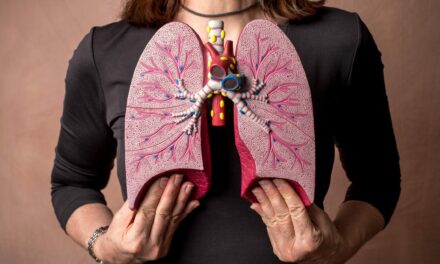Lung diseases such as pulmonary fibrosis and emphysema are common in individuals with malfunctioning telomeres, and researchers from Johns Hopkins Medicine have discovered what occurs and why. Mary Armanios, MD, and colleagues report that some stem cells vital to lung cell oxygenation undergo premature aging, and also stop dividing and proliferating, when their telomeres are defective. The stem cells are those in the alveoli.
The researchers discovered that dormant or senescent stem cells send out signals that recruit immune molecules to the lungs and cause the severe inflammation that is a hallmark of emphysema and other related lung disease, as noted on the Johns Hopkins Medicine news release. Previously, researchers and clinicians believed inflammation alone is what drives lung diseases, but the new research suggests that “if it’s premature aging of the stem cells driving this, nothing will really get better if you don’t fix that problem,” according to Armanios.
As there are no current ways to treat or replace damaged lung stem cells, Armanios says knowing the source of the problem can redirect research efforts. Armanios states, “It’s a new challenge that begins with the questions of whether we take on the effort to fix this defect in the cells, or try to replace the cells.”
The research team also found that this telomere-driven defect leaves mice very vulnerable to anticancer drugs that are toxic to the lungs. In instances of telomere dysfunction, the lung stem cells defect all became severely ill and died within a month. The Johns Hopkins news release notes that this finding could shed light on why “sometimes people with short telomeres may have no signs of pulmonary disease whatsoever, but when they’re exposed to an acute infection or to certain drugs, they develop respiratory failure,” according to Armanios.
The research team also hopes to learn more about how mice with this telomere defect in lung stem cells respond to cigarette smoke. Armanios says further studies should help the scientists determine whether cigarette smoke causes lung disease in this setting because of stem cell failure.
Source: Johns Hopkins Medicine









